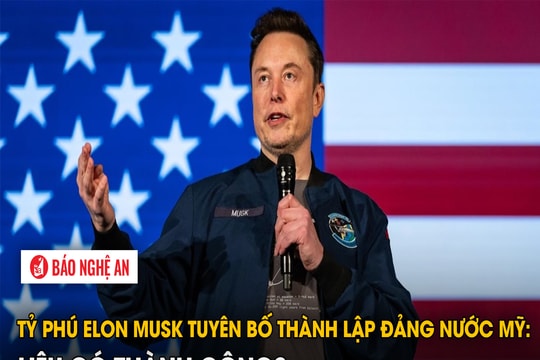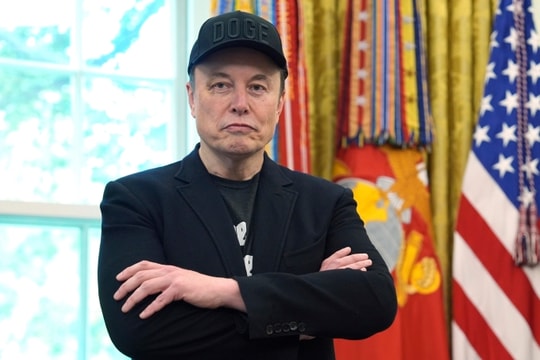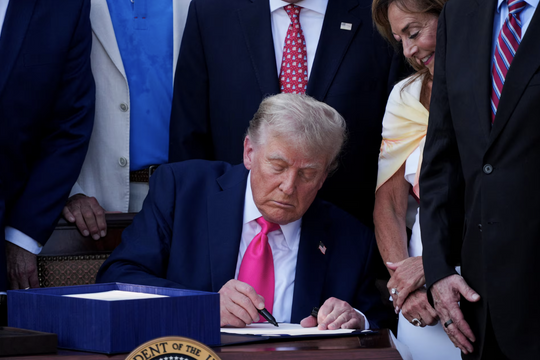Billionaire Elon Musk's US Party has not yet been formed but is predicted to 'die young'
Billionaire Elon Musk just announced the founding of the American Party on July 5. Experts assess that the American Party faces the risk of failure from him.
The American political system has no room for a third party.
According to the Washington Post, the Tesla and SpaceX CEO affirmed that he would make the new political organization the third largest party in the United States, aiming to provide voters with an alternative to the traditional Democratic-Republican coalition.
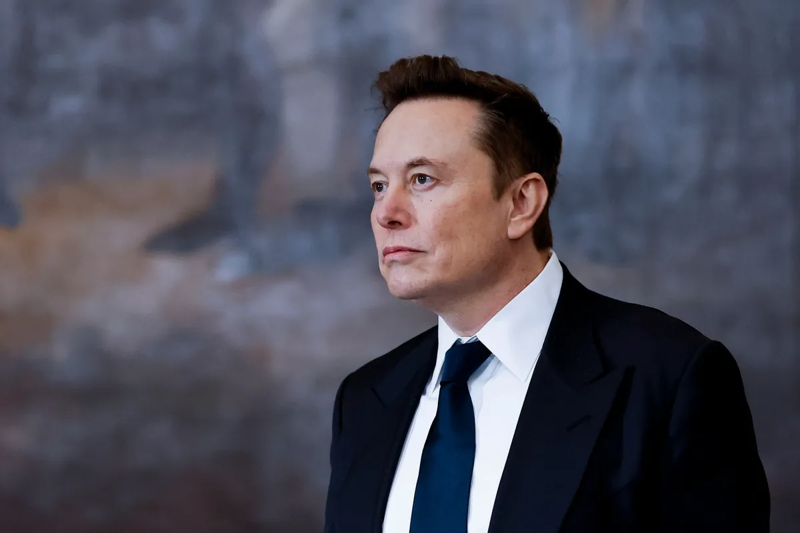
Hans Noel, a professor of political history at Georgetown University, argues that the US does not have an open system for many third parties to succeed. Noel explains this because of the 'winner-take-all' system, in which the candidate who wins an absolute majority in a constituency receives all the votes from that district.
In a presidential election, all of a state's electoral votes go to the candidate who wins that state. Even if the candidate who finishes second loses the popular vote by just one vote, they still lose all their electoral votes.
This is in stark contrast to other democracies where a small party can win a few seats in the legislature by getting 20-30% of the vote and build from there.
The history of third party failures
This electoral rule has made it impossible for third parties in the US, despite their long-standing existence and large numbers, to make a difference in elections.
The last time a presidential candidate who was not a member of or allied with the Republican and Democratic parties but still won the electoral college was George Wallace in the 1968 election.
Another classic example is in the 1992 election, billionaire Ross Perot won 19% of the national popular vote. However, he did not win any states and therefore did not receive any electoral votes.
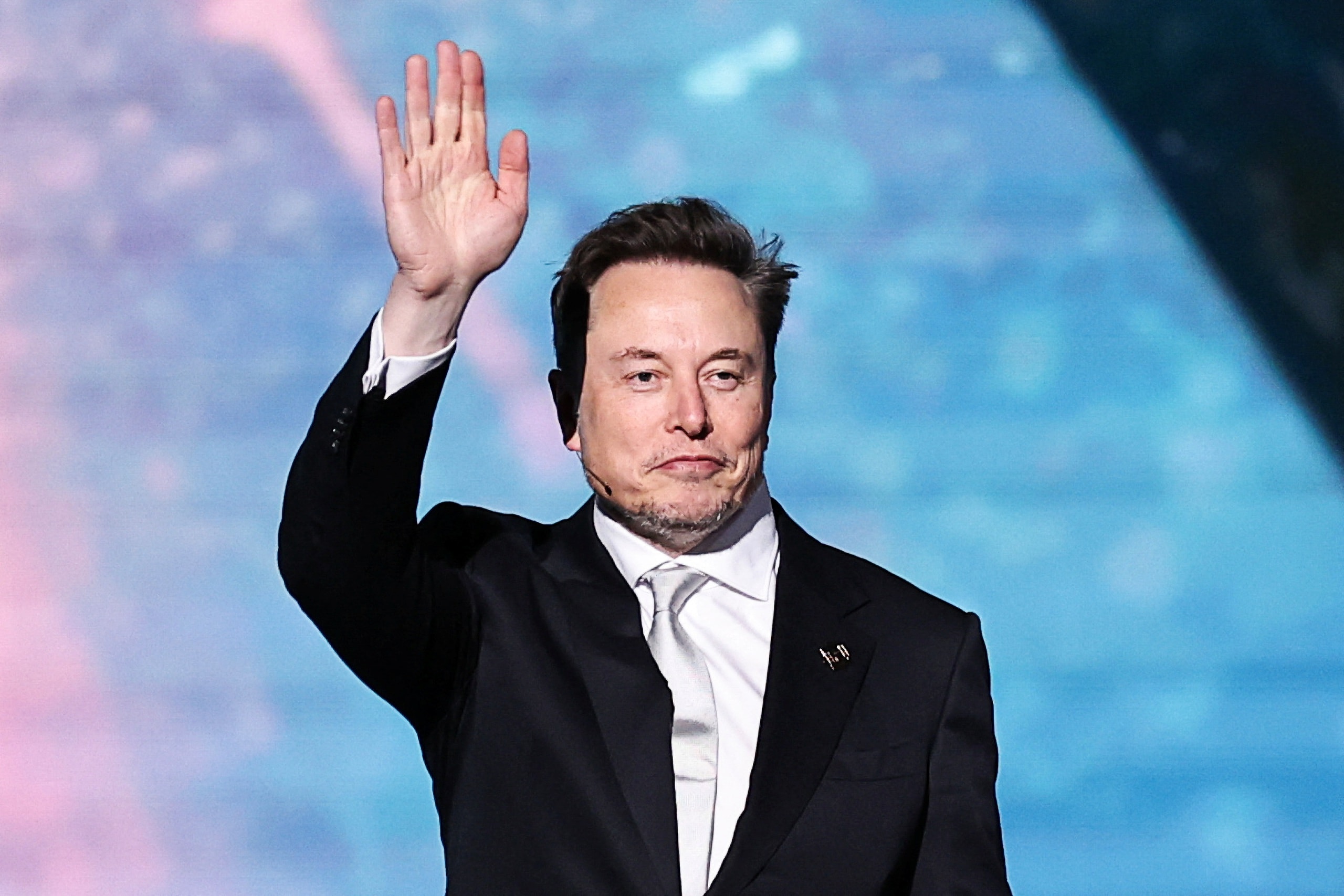
The requirements for forming a new political party and participating in elections are also very strict, including the requirement to collect signatures of support from voters. Although Elon Musk can easily overcome the initial steps with his huge financial resources, building a political candidate or candidates who can win absolutely in any constituency requires a huge effort.
Lack of political allies
Politics has never been and should not be a one-man race. To win, any politician needs strong allies. This is exactly what Elon Musk lacks in politics.
After his controversial split with President Donald Trump, his influence in the Republican Party has weakened significantly. Elon Musk's controversial personality also makes it difficult for influential figures to support him.
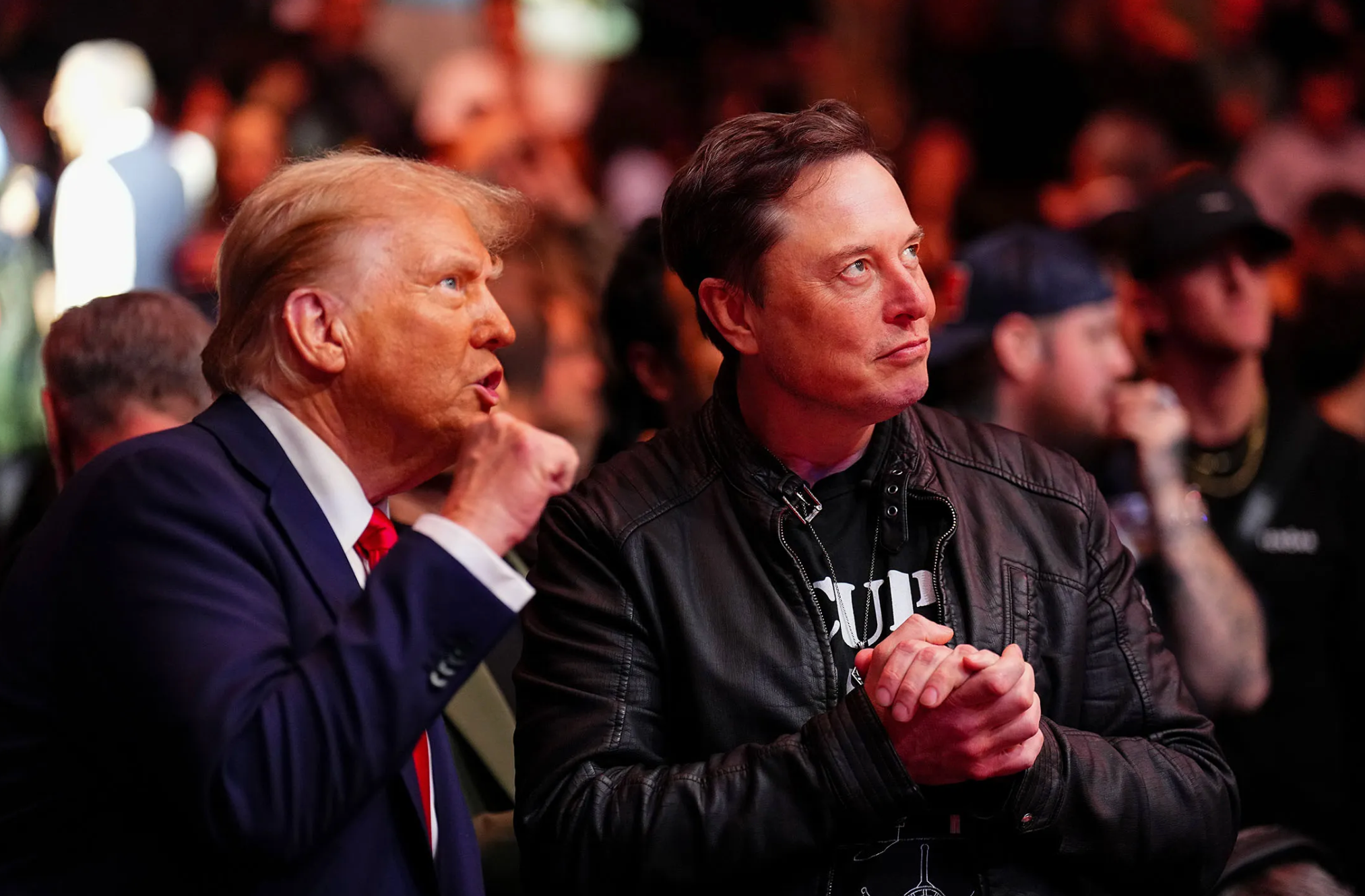
Despite his vast resources, election rules do not allow Elon Musk to spend money to buy votes. He is alone, facing off against strong political parties that can raise funds from a much larger network of voters.
Professor Noel said a politician's fundraising ability shows they know how to connect with many people - people who not only give money but can also do other things, at least vote for them.
Ambiguous political views
So far, the political views and policy direction of Elon Musk's party are unclear. The only hints come from the billionaire's political views, which include opposing increased budget spending and specifically opposing the Big and Beautiful Super Law.
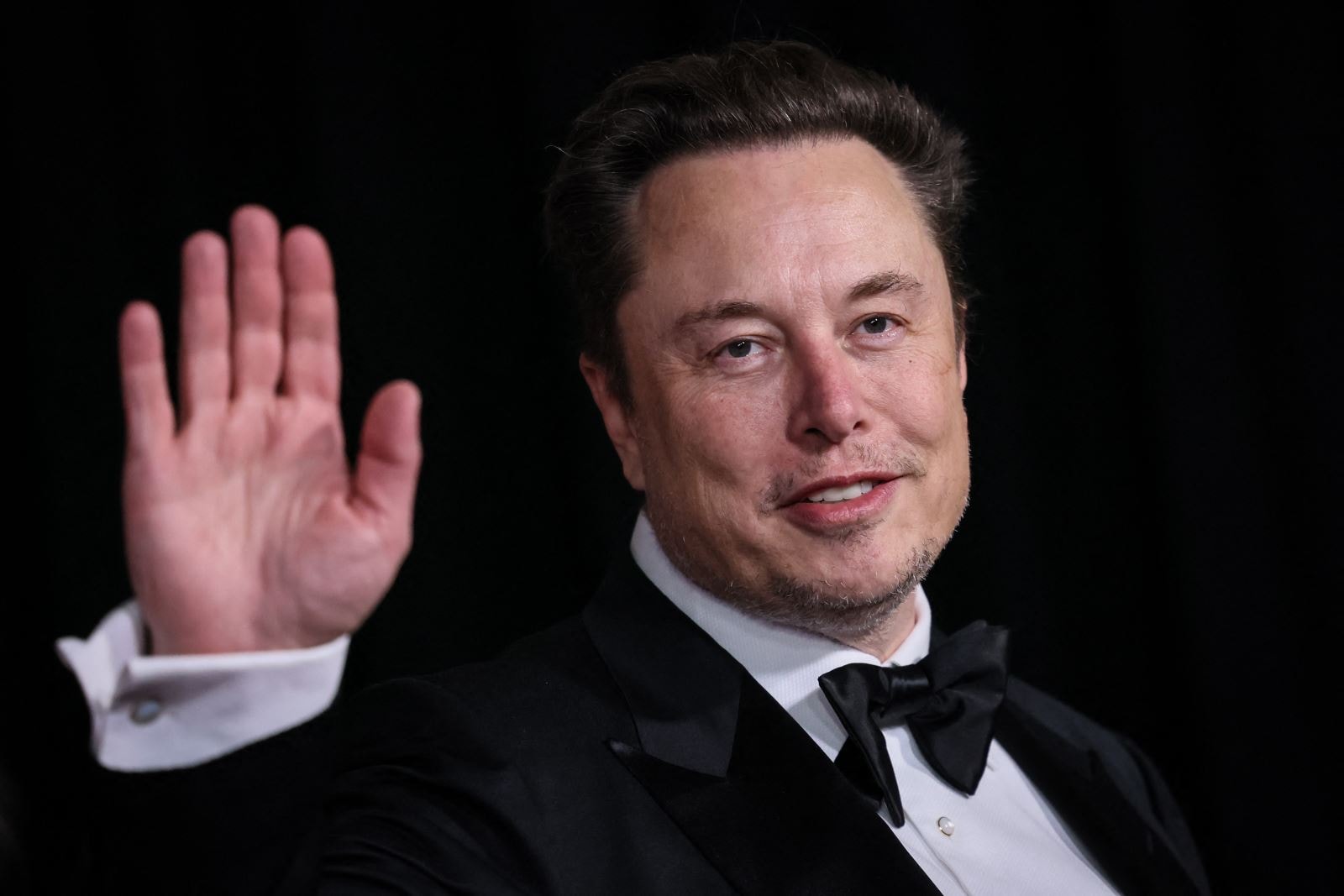
But that alone is not enough to form a long-term party strategy that can attract a loyal base of voters, according to Professor McCorkle. Elon Musk himself, whose companies receive tens of billions of dollars in government funding, could undermine his message.
Elon Musk’s opposition to government spending and his large government contract benefit create an inherent contradiction in his political message. His companies, SpaceX and Tesla, have received billions of dollars in federal grants and contracts.
The risk of premature death of the American Party
Given the above challenges, Elon Musk’s American Party is at high risk of “dying young” right from its first steps. The US political system is designed to maintain a two-party structure, and any attempt to create a third party will encounter difficult institutional barriers.
Lack of allies, ambiguous policy positions, and especially negative impact on the political faction he once supported are all factors that could cause this political project to fail.
Even if the party fails to make electoral gains, it could still have far-reaching political consequences. Diluting the Republican vote could create a surprising advantage for Democrats in key races.
Elon Musk, the founder of the American Party, may be the main reason why his party cannot survive and develop sustainably.


